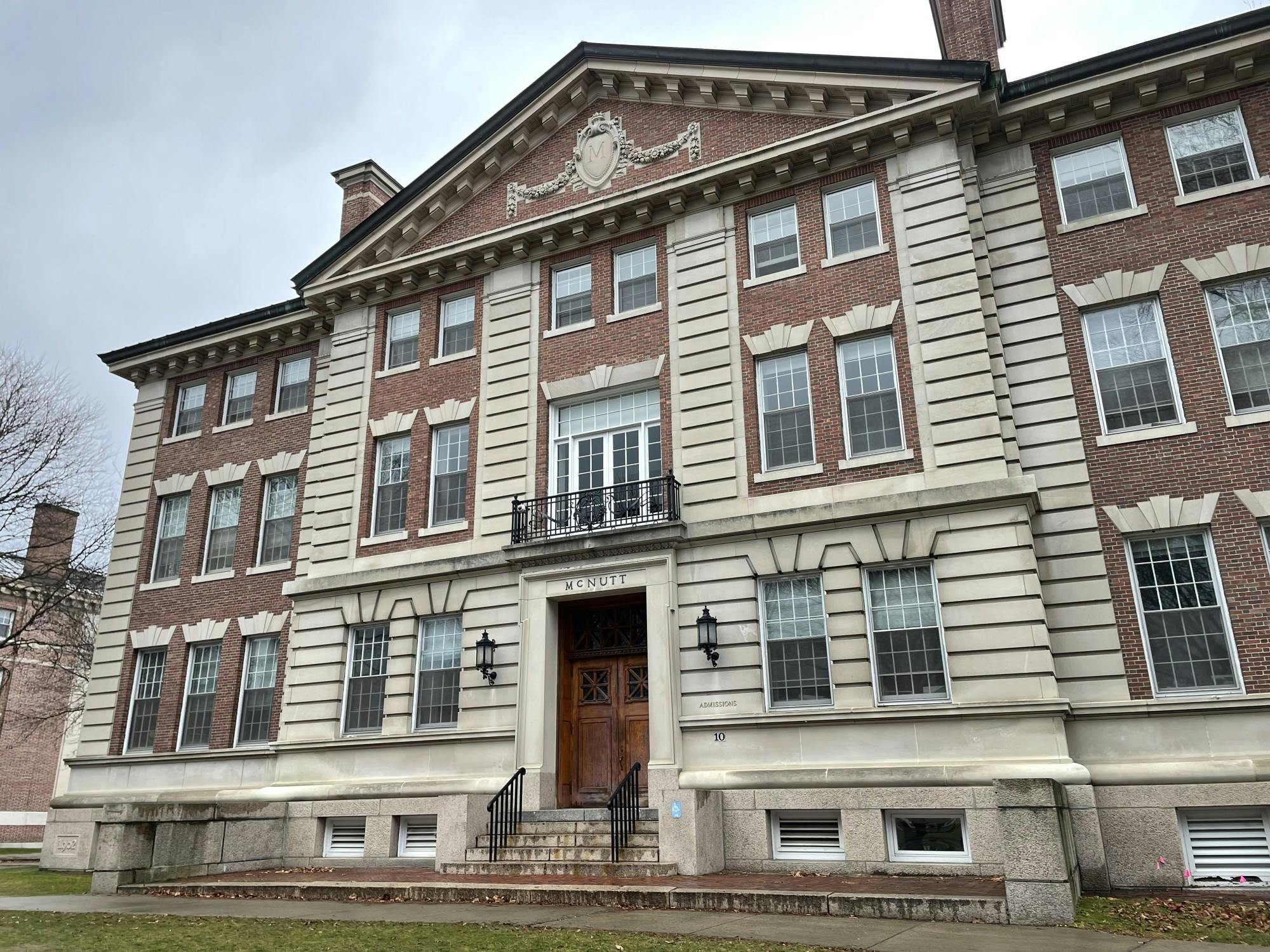Dartmouth has received a bequest of more than $150 million, the largest scholarship bequest in its history, College President Sian Leah Beilock announced today in an email to campus. The gift comes from the estate of Barbara and Glenn Britt ’71, Tu’72 and will be split between undergraduate students — who will receive 75% of the donation — and the Tuck School of Business.
Dartmouth will use the donation to remove the parent tuition contribution for any undergraduate student with a family income less than $125,000 with typical assets — nearly doubling its current $65,000 threshold and giving Dartmouth the highest threshold in the nation, Beilock wrote. According to vice president and dean of admissions and financial aid Lee Coffin, the Britt Scholarship will first be implemented for the 2024-2025 academic year and will apply to all current and future undergraduates. Coffin added that the bequest will help the College “address middle income affordability.”
“When I first heard about [the donation], I said, ‘That is literally pennies from heaven,’” Coffin said. “It’s remarkable.”
According to Dartmouth News, the donation will impact around 350 families across all four undergraduate classes each year. Students from qualifying families — those making less than $125,000 per year — will need to contribute no more than $5,000 annually from leave-term jobs and on-campus employment, the announcement states.
Glenn Britt was the former CEO of Time Warner Cable and a “visionary leader” in the cable TV industry, according to Emily Caldwell, who serves as the College's senior philanthropic advisor for presidential initiatives and principal gifts. Caldwell said she began a philanthropic relationship with the Britts around 2002 and had discussed plans for their estate before their deaths.
Glenn and Barbara Britt died in 2014 and August 2023, respectively, according to Caldwell. While Barbara Britt’s death activated the bequest, Caldwell said the College will not know the total gift amount until the estate is fully settled.
According to Coffin, Britt attended Dartmouth on financial aid and credited his experience with “transforming his life.” Caldwell added that Britt would not have been able to attend Dartmouth without financial support from the College.
“In all of my conversations with [the Britts], [Glenn] talked so much about how his undergraduate education at Dartmouth shaped him into the leader he became,” Caldwell said. “He wanted to leave the majority of his estate to Dartmouth and Tuck for financial aid to support students like him.”
Tuck will receive 25% of the scholarship bequest, amounting to at least $37.5 million — “the largest outright gift” in the school’s history, Tuck communications officer Eric Walters wrote in an email statement. The gift will not change Tuck’s process of awarding scholarships — which currently operates on a merit-based system — but will help the school “keep pace with the sharp rise in demand for MBA scholarships” and ensure that Tuck can award competitive scholarships in the future, Walters wrote. He added that Tuck learned about the gift after Barbara Britt’s death and will apply aid from the bequest to members of the Class of 2026 and beyond.
“The infusion of endowed scholarship funding will be transformative,” Walters wrote. “It will help Tuck attract and enroll exceptionally talented students, including those with higher financial burdens — such as first-generation students — who currently make up 19% of the Tuck Class of 2025.”
Coffin added that the donation will help Dartmouth as it “look[s] to the campus of the future” and seeks to support middle-income families, for whom affordability is “always a big challenge.”
“It’s a ‘wow’ moment where you think … ‘Look at this resource that this family has committed, not just to the College, but to something so personal for them around financial aid,’” Coffin said. “The generosity of someone is changing lives.”




